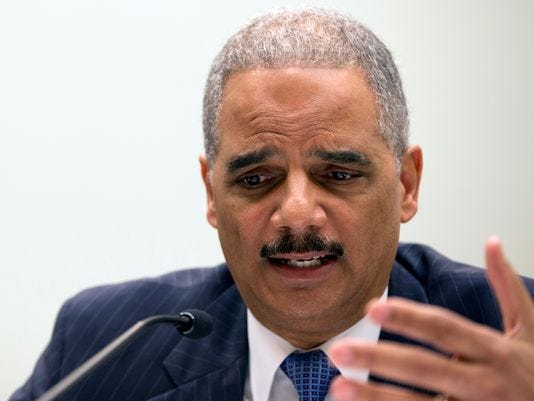By Mark O’Brien
Impunity Watch Reporter, North America
WASHINGTON, United States — The Justice Department acknowledged for the first time this week that U.S. drone strikes have killed four American citizens in the Middle East since 2009.

The admission came Wednesday, the day before President Obama a new approach to the nation’s drone policy, in a letter from Attorney General Eric Holder to Sen. Patrick Leahy of Vermont, who chairs the Senate Judiciary Committee.
“Based on generations-old legal principles and Supreme Court decisions handed down from WWII, as well as during the current conflict, it is clear and logical the United States Citizenship alone does not make such citizens immune from being targeted,” Holder wrote.
During counter-terrorism operations against al-Qaeda and other forces, the United States targeted and killed one American citizen—Anwar al-Awlaki—and acknowledged the deaths of three others as a result of U.S. drone attacks. Those citizens—Samir Khan, an al-Qaeda propagandist; Abdulrahman al-Awlaki, the son of Anwar al-Awlaki; and, Jude Kenan Mohammed—were killed around the same time but “were not specifically targeted.”
The letter described the older al-Awlaki as the planner of the attempted bombing of a Detroit-bound airliner in 2009, and it said he plaid a key role in a failed attempt to bomb cargo planes headed for the United States in 2010.
The letter was a response directed by President Obama to congressional inquiries into the “administration[‘s] use of lethal force against U.S. citizens.” The White House said it “informed the relevant congressional oversight committees that it had approved the use of lethal force against al-Awlaki in February 2010—well over a year before the operation in question.”
On Thursday, President Obama announced a new approach to drone strikes in the future, tightening the rules of who can be targeted.
“In the years to come, not every collection of thugs that labels themselves al-Qaeda will pose a credible threat to the United States,” Obama said at the National Defense University in Washington.
“Unless we discipline our thinking, our definitions, our actions, we may be drawn into more wars we don’t need to fight, or continue to grant presidents unbound powers more suited for traditional armed conflicts between nation states,” he said. “This war, like all wars, must end. That’s what history advises. That’s what our democracy demands.”
The Administration said, moving forward, the U.S. military would be the lead authority for drone strikes instead of the Central Intelligence Agency.
For further information, please see:
Bloomberg Businessweek — Obama Sees Sunset on Sept. 11 War Powers in Drone Limits — 24 May 2013
CBS News — Attorney General Holder: Drones Killed 4 Americans Since 2009 — 22 May 2013
USA Today — Holder Says Four U.S. Citizens Killed in Drone Strikes — 22 May 2013
Voice of America — US Officially Acknowledges Drone Strike Killings — 22 May 2013



